The policy advocacy team work closely with the CRSP, government bureaus, and other stakeholders to follow up the implementation of the Regulation of the Office of the Prime Minister On the Screening of Aliens who Enter into the Kingdom and are Unable to Return to the Country of Origin B.E. 2562 and the Memorandum of Understanding on The Determination of Measures and Approaches Alternative to Detention of Children in Immigration Detention Centers B.E. 2562 which are the significant law and policy that related to the urban refugees in Thailand.
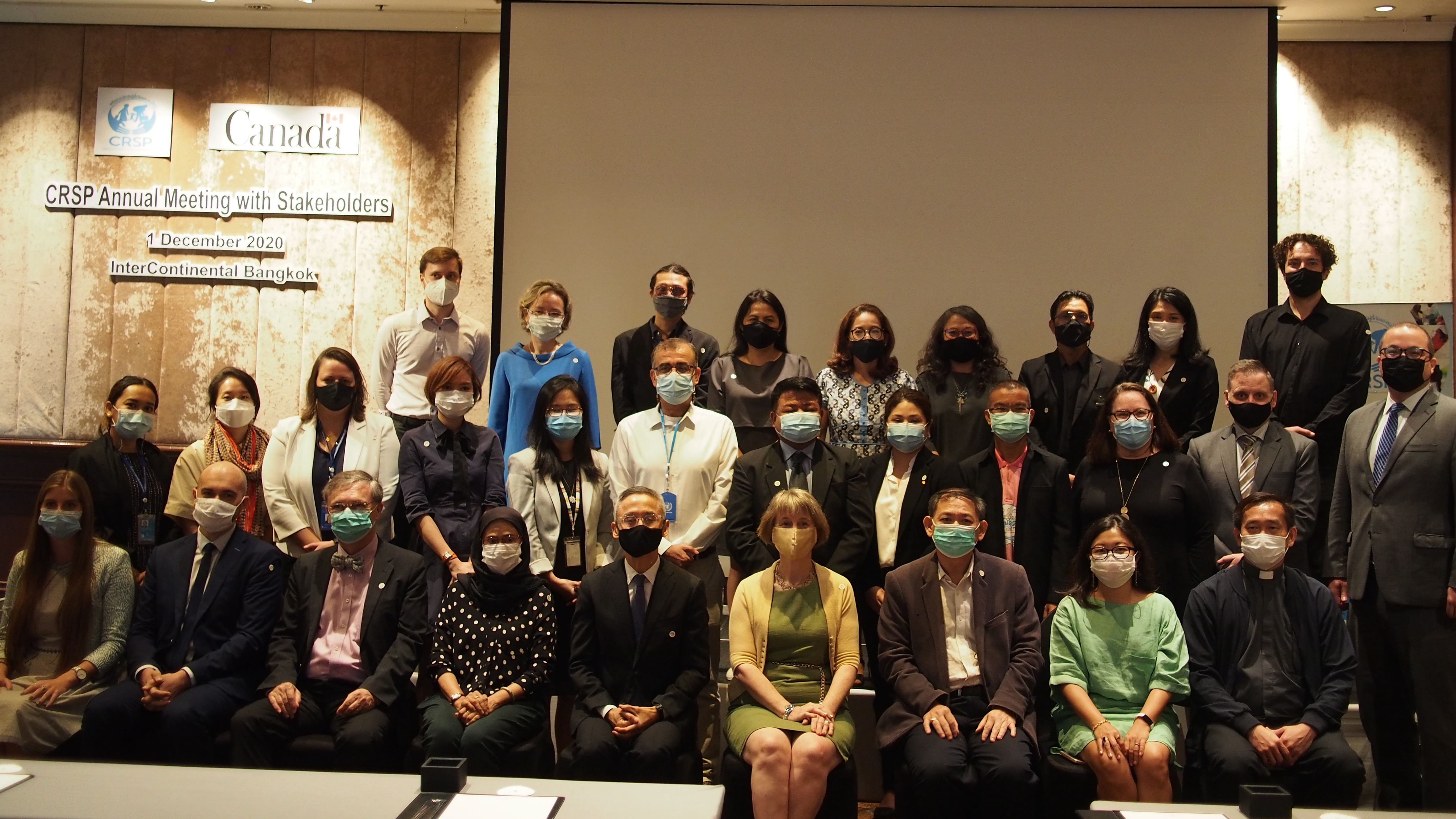
Regulation of the Office of the Prime Minister On the Screening of Aliens who Enter into the Kingdom and are Unable to Return to the Country of Origin B.E.2562
National Screening Mechanism (NSM)
There are people who enter and reside in Thailand, whether legally or illegally under the immigration law, and they are unable to return to their country of origin since they have a reasonable ground to believe that they would suffer danger due to persecution. The Thai government established a screening mechanism for such groups in order to reach sustainable solutions for Thailand’s alien management problem.
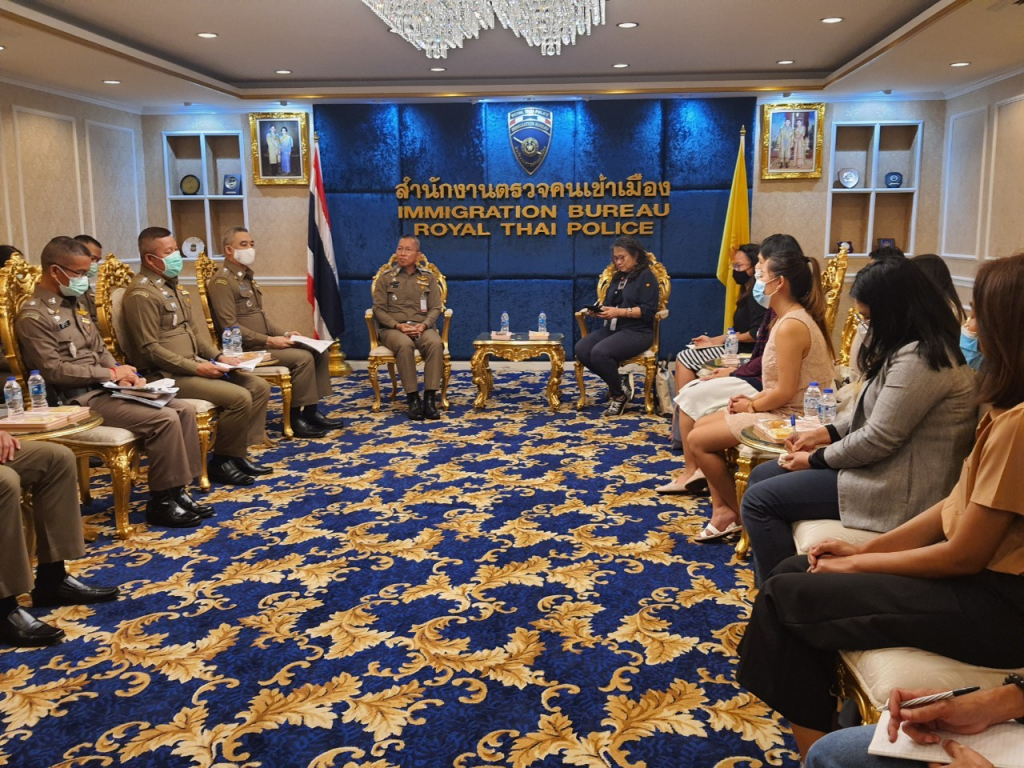
Memorandum of Understanding on The Determination of Measures and Approaches Alternative to Detention of Children in Immigration Detention Centers
บันทึกความเข้าใจเรื่อง การกำหนดมาตรการและแนวทางแทนการกักตัวเด็กไว้ในสถานกักตัวคนต่างด้าวเพื่อรอการส่งกลับ
ATD MOU
On 21 January 2019, seven Thai government agencies signed the Memorandum of Understanding on The Determination of Measures and Approaches Alternative to Detention of Children in Immigration Detention Centers.
The Memorandum of Understanding to guide the Royal Thai Police, the Ministry of Social Development and Human Security and other relevant agencies in assisting and protecting children detained at Immigration Detention Centers, in accordance with Thailand’s domestic laws and international obligations.
บันทึกความเข้าใจเรื่อง การกำหนดมาตรการและแนวทางแทนการกักตัวเด็กไว้ในสถานกักตัวคนต่างด้าวเพื่อรอการส่งกลับจัดทำขึ้นเพื่อให้สำนักงานตำรวจแห่งชาติ กระทรวงการพัฒนาสังคมและความมั่นคงของมนุษย์ และหน่วงงานที่เกี่ยวข้องใช้เป็นแนวทางในการให้ความช่วยเหลือและปกป้องคุ้มครองเด็กที่ถูกกักตัวไว้ในสถานกักตัวคนต่างด้าวเพื่อรอการส่งกลับ ให้สอดคล้องกับกรอบกฎหมายภายในประเทศและพันธกรณีระหว่างประเทศ โดยมีวัตถุประสงค์เพื่อเป็นแนวทางปฏิบัติงานร่วมกันของหน่วยงานภาครัฐและหน่วยงานที่เกี่ยวข้องในการแก้ไขปัญหาการกักตัวเด็กไว้ในสถานกักตัวคนต่างด้าวเพื่อรอการส่งกลับ และเพื่อกำหนดกลไกและหน้าที่ความรับผิดชอบที่ชัดเจนของหน่วยงานในการสร้างหลักประกันว่า เด็กจะได้รับการคุ้มครองสิทธิตามกฎหมายภายในประเทศและพันธกรณีระหว่างประเทศ
โดยมีเอกสารที่เกี่ยวข้องคือ
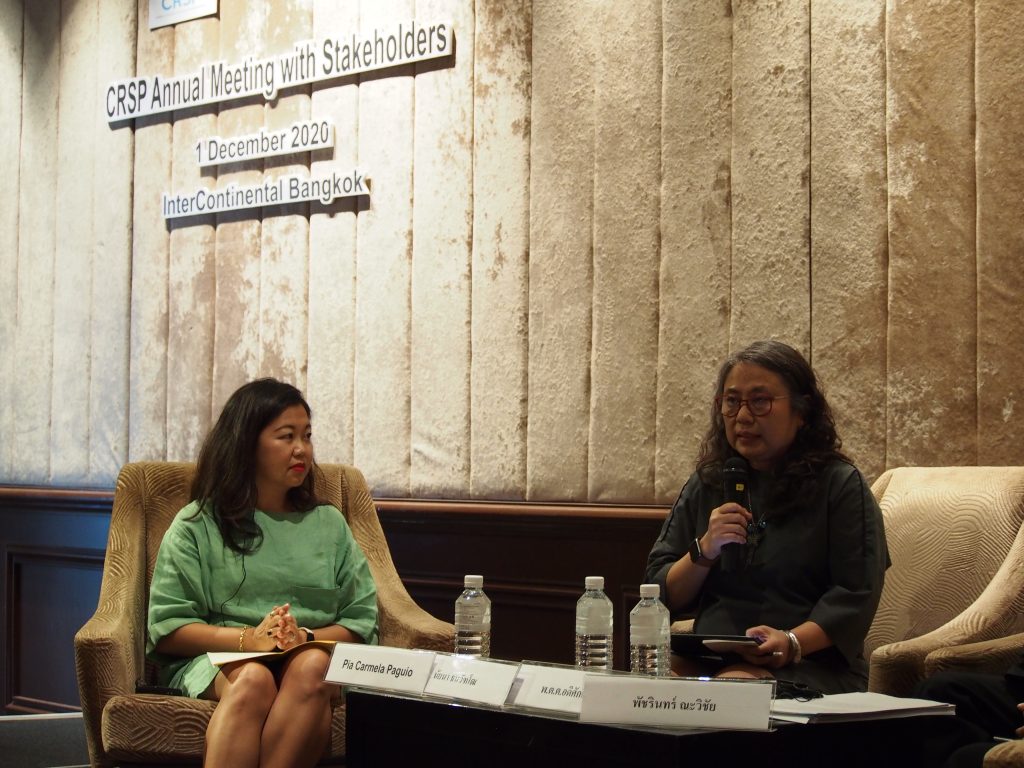
AAT Updates
Stay informed with press releases, announcements, refugee stories and news.
- Legal Empowerment of Refugees in Southeast Asia: The ARPR Project
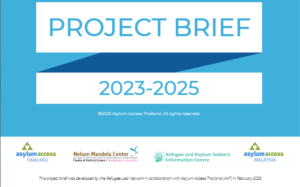 In a world where justice often feels out of reach, the Advancing Refugee Protection and Promoting Accountability in Southeast Asia through Legal Empowerment and Refugee Leadership (ARPR) Project is rewriting the narrative of the struggle of refugee communities for protection and justice. A groundbreaking Participatory Action Research (PAR) initiative, the ARPR Project champions legal empowerment, supporting refugees in Thailand, Malaysia, …
In a world where justice often feels out of reach, the Advancing Refugee Protection and Promoting Accountability in Southeast Asia through Legal Empowerment and Refugee Leadership (ARPR) Project is rewriting the narrative of the struggle of refugee communities for protection and justice. A groundbreaking Participatory Action Research (PAR) initiative, the ARPR Project champions legal empowerment, supporting refugees in Thailand, Malaysia, … - Report: Addressing the Challenges Faced by New Refugees from Myanmar in Thailand
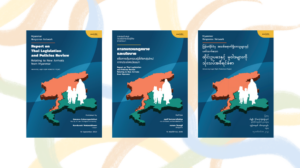 Despite not being a state party to the 1951 UN Convention on the Status of Refugees and its 1967 Protocol, Thailand has been offering humanitarian assistance to refugees for centuries, including to the newly arrived refugees from Myanmar in the last few decades. Many of the individuals and families arriving from Myanmar in recent years have been forced to flee …
Despite not being a state party to the 1951 UN Convention on the Status of Refugees and its 1967 Protocol, Thailand has been offering humanitarian assistance to refugees for centuries, including to the newly arrived refugees from Myanmar in the last few decades. Many of the individuals and families arriving from Myanmar in recent years have been forced to flee … - เสียงเรียกร้องจากชายแดน: บทวิเคราะห์การทบทวนกฎหมายและนโยบายเพื่อคุ้มครองผู้ลี้ภัยกลุ่มใหม่จากเมียนมา
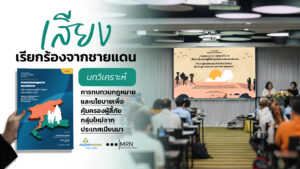 สถานการณ์ความรุนแรงภายในประเทศเมียนมาที่ทวีความรุนแรงนับตั้งแต่รัฐประหารเมื่อปี 2564 ส่งผลให้ประชาชนจำนวนมากต้องพลัดถิ่นฐาน และหนีภัยสู่ชายแดนประเทศเพื่อนบ้าน ซึ่งหนึ่งในปลายทางสำคัญ คือ “ประเทศไทย…”
สถานการณ์ความรุนแรงภายในประเทศเมียนมาที่ทวีความรุนแรงนับตั้งแต่รัฐประหารเมื่อปี 2564 ส่งผลให้ประชาชนจำนวนมากต้องพลัดถิ่นฐาน และหนีภัยสู่ชายแดนประเทศเพื่อนบ้าน ซึ่งหนึ่งในปลายทางสำคัญ คือ “ประเทศไทย…” - Advancing refugee protection and promoting accountability in Southeast Asia through legal empowerment and refugee leadership (ARPR)
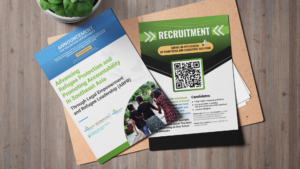 The initiative aims to strengthen refugees’ legal empowerment, enabling them to understand, use, and shape laws impacting their lives in Thailand…
The initiative aims to strengthen refugees’ legal empowerment, enabling them to understand, use, and shape laws impacting their lives in Thailand… - Click-Aroi Menu Catering
 Click Aroi (‘aroi’ means ‘delicious’ in Thai) enhances refugees’ skills in traditional cooking, provides training on business skills and entrepreneurship, and creates channels for them to tell their stories through food…
Click Aroi (‘aroi’ means ‘delicious’ in Thai) enhances refugees’ skills in traditional cooking, provides training on business skills and entrepreneurship, and creates channels for them to tell their stories through food… - Education Resources in Bangkok
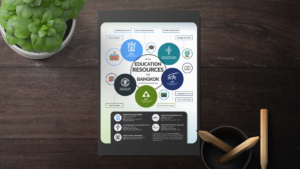 Navigating refugee education options in Bangkok can be a challenge, and here is some information to help! This infographic shows the education service providers in Bangkok, which services they provide, and their contact information…
Navigating refugee education options in Bangkok can be a challenge, and here is some information to help! This infographic shows the education service providers in Bangkok, which services they provide, and their contact information… - AAT Open Recruiting for Freelance Interpreter Position
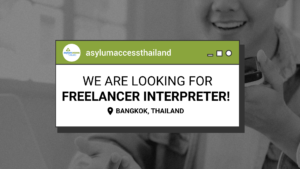 Asylum Access Thailand is looking for community interpreters for a Somali, Jrai, and Urdu languages…
Asylum Access Thailand is looking for community interpreters for a Somali, Jrai, and Urdu languages… - How to Contact Asylum Access Thailand?
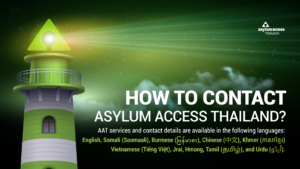 Asylum Access Thailand services and contacts are available in multiple languages. Please visit the link for more information…
Asylum Access Thailand services and contacts are available in multiple languages. Please visit the link for more information… - Embrace the Healing Power of Art!
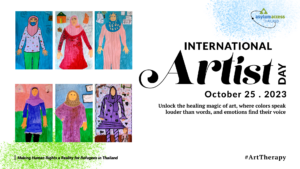 On this International Artist Day (25 Oct), Asylum Access Thailand is excited to introduce you to an incredible initiative that combines art and mental well-being for urban refugees and asylum seekers in Bangkok. Psychological First Aid…
On this International Artist Day (25 Oct), Asylum Access Thailand is excited to introduce you to an incredible initiative that combines art and mental well-being for urban refugees and asylum seekers in Bangkok. Psychological First Aid…
